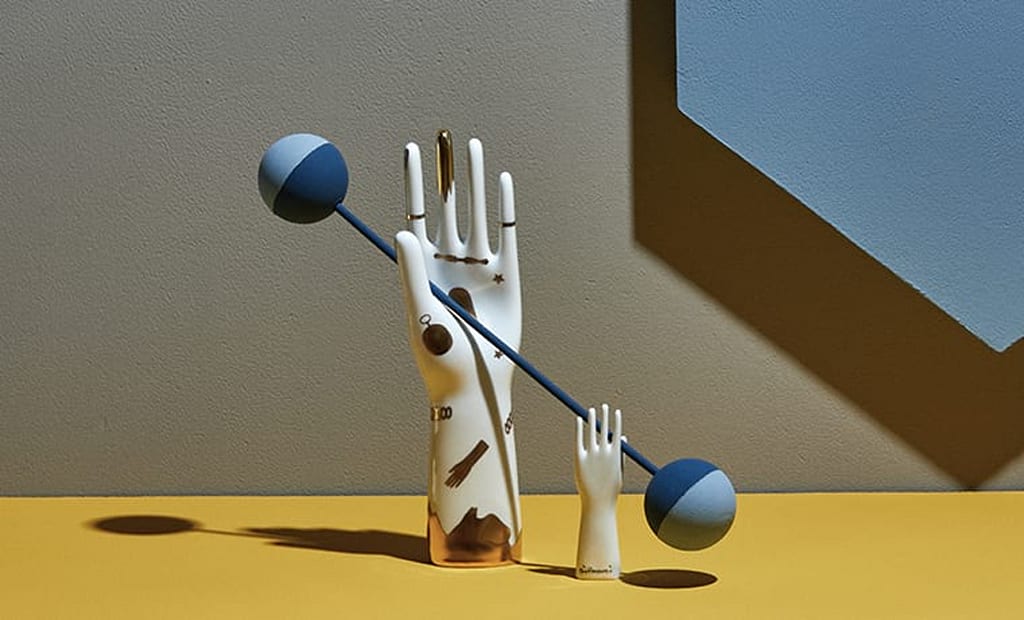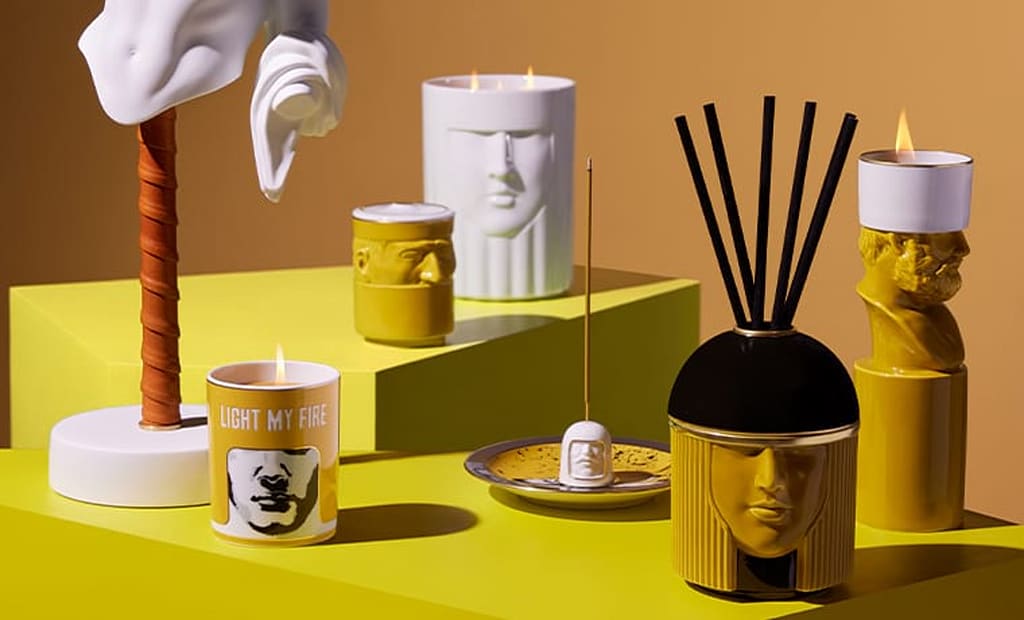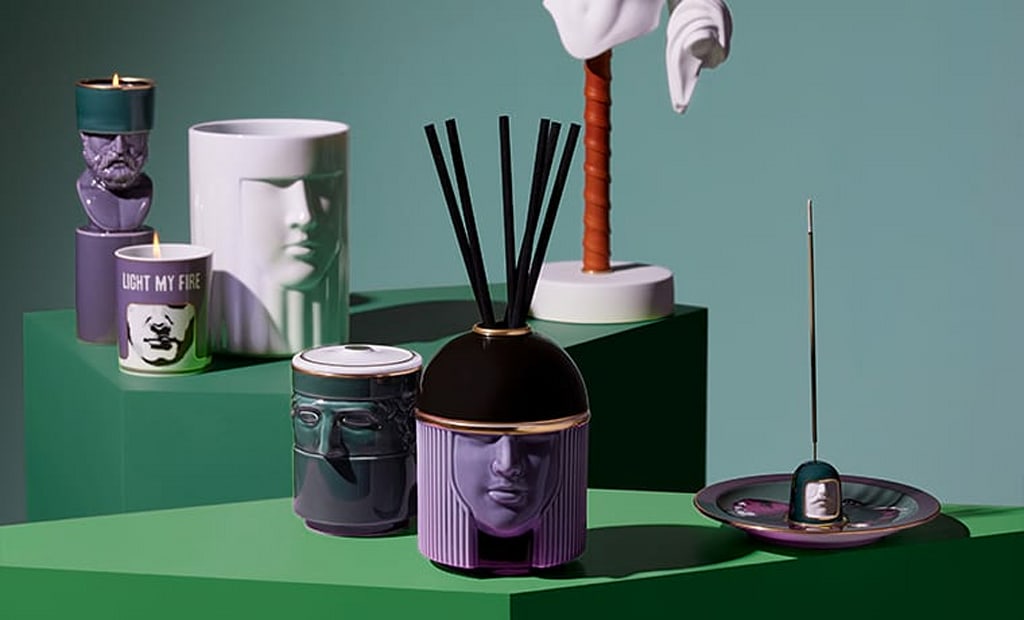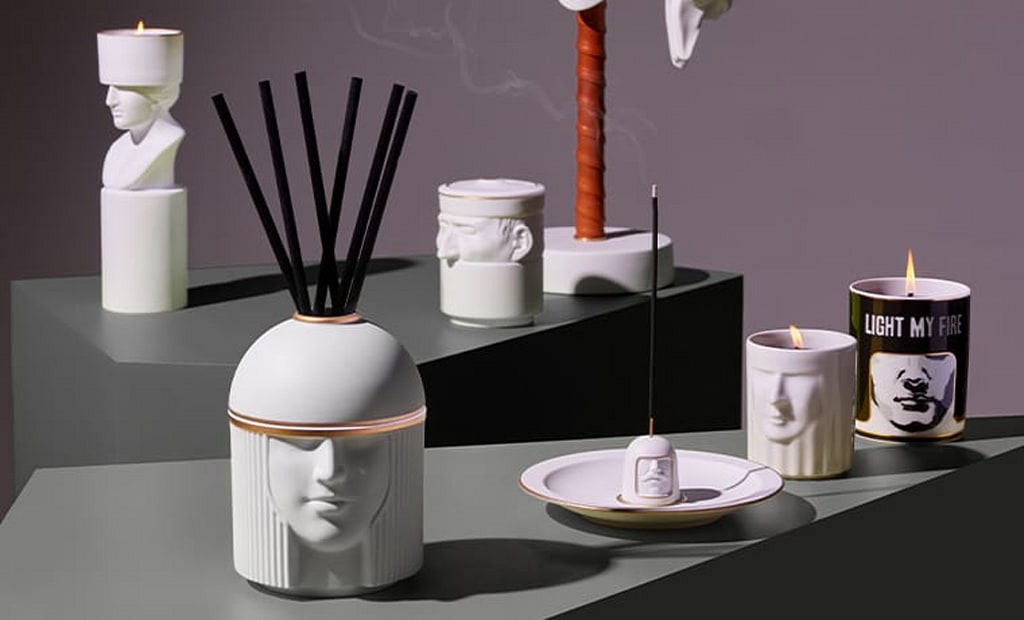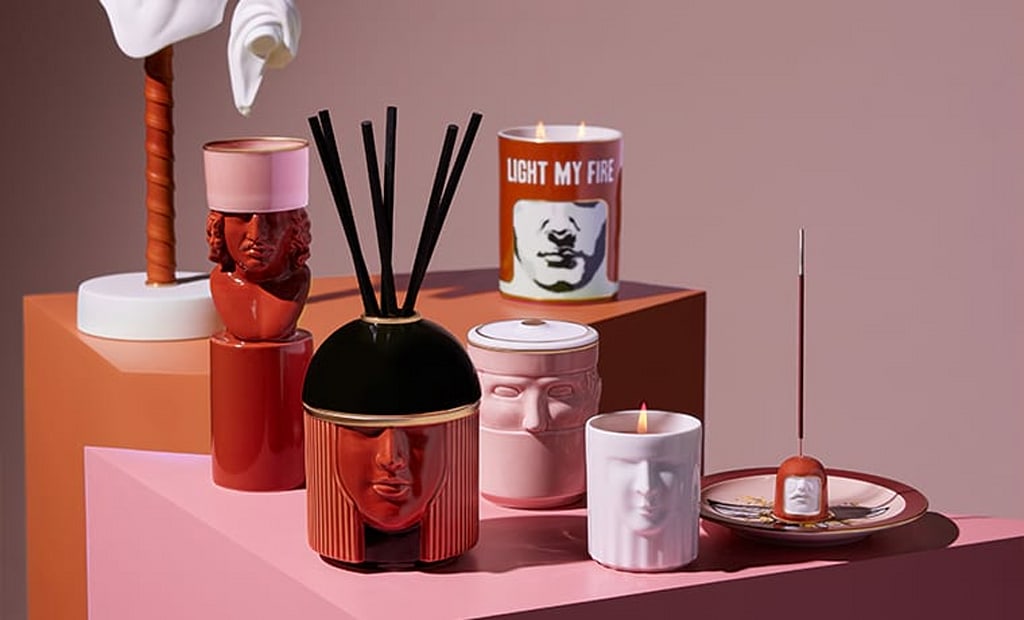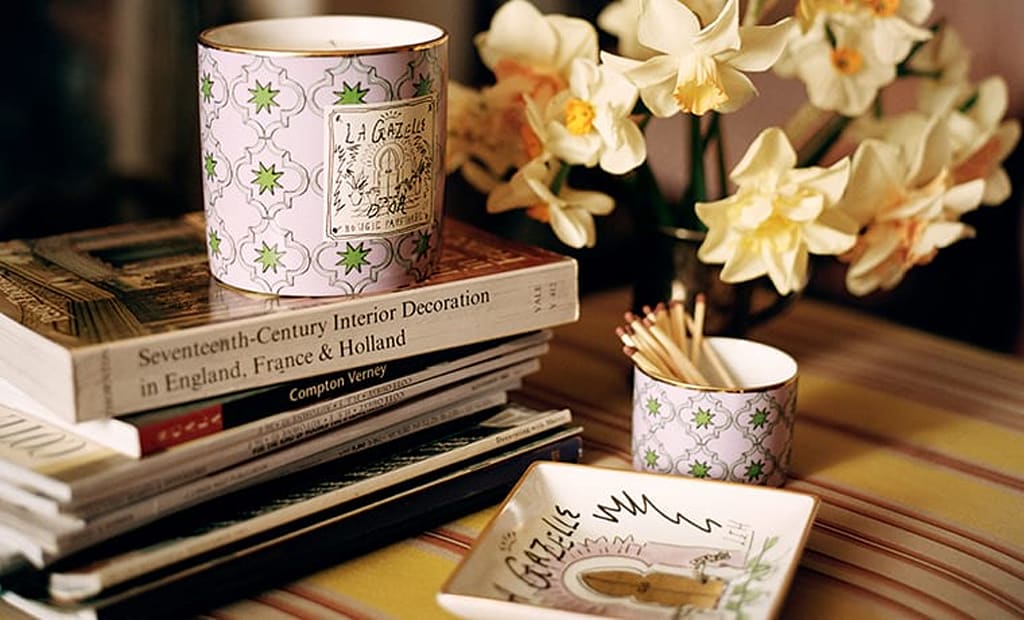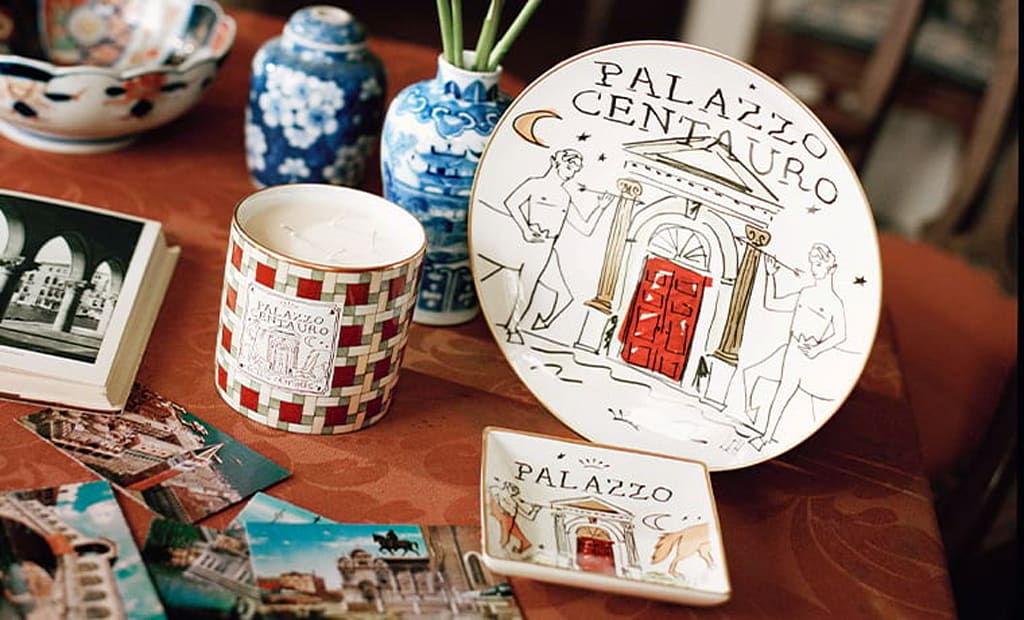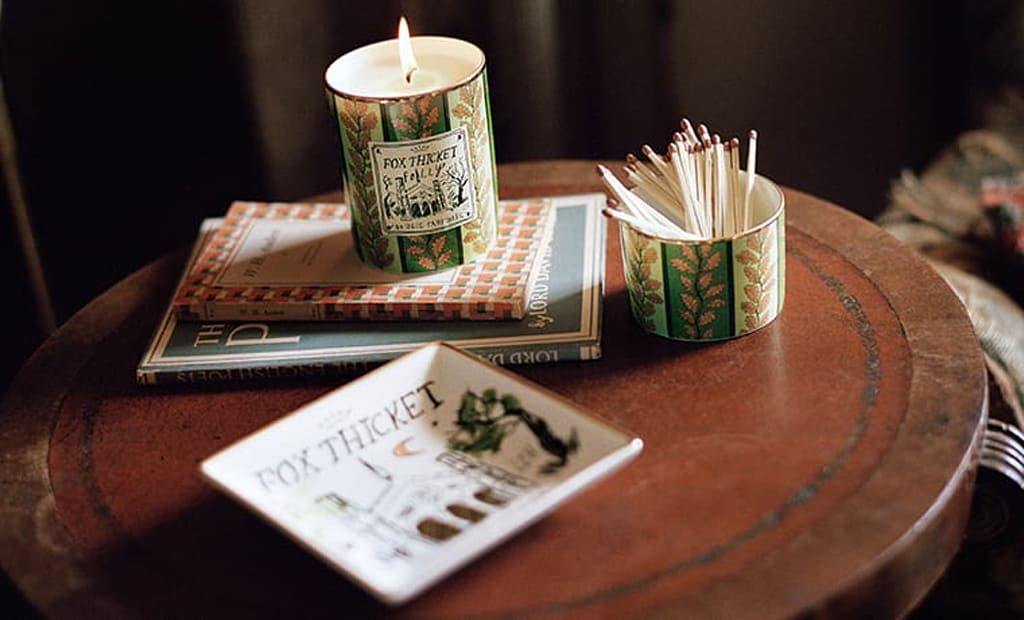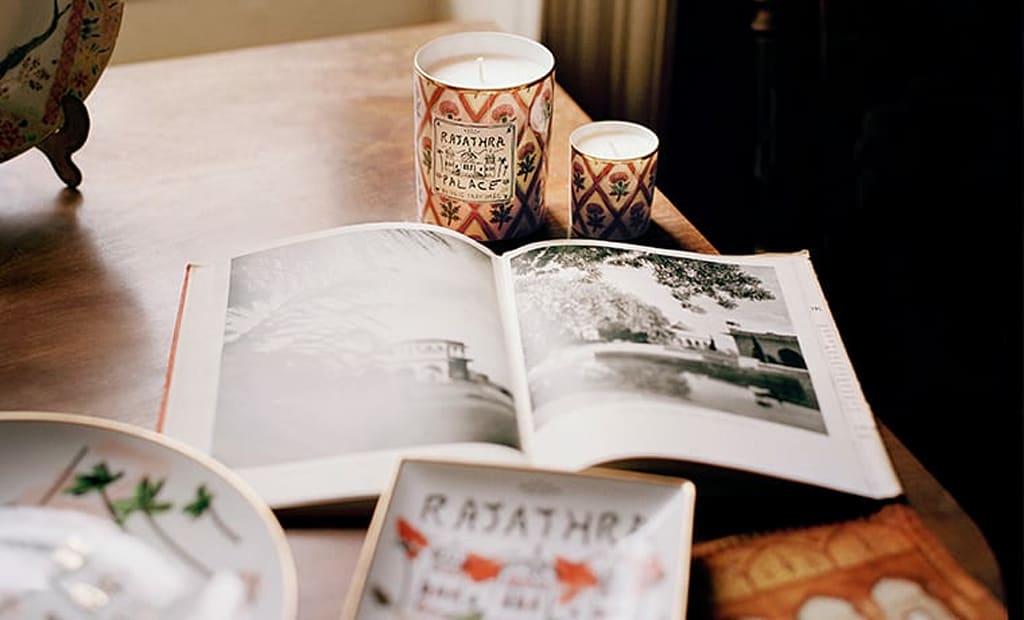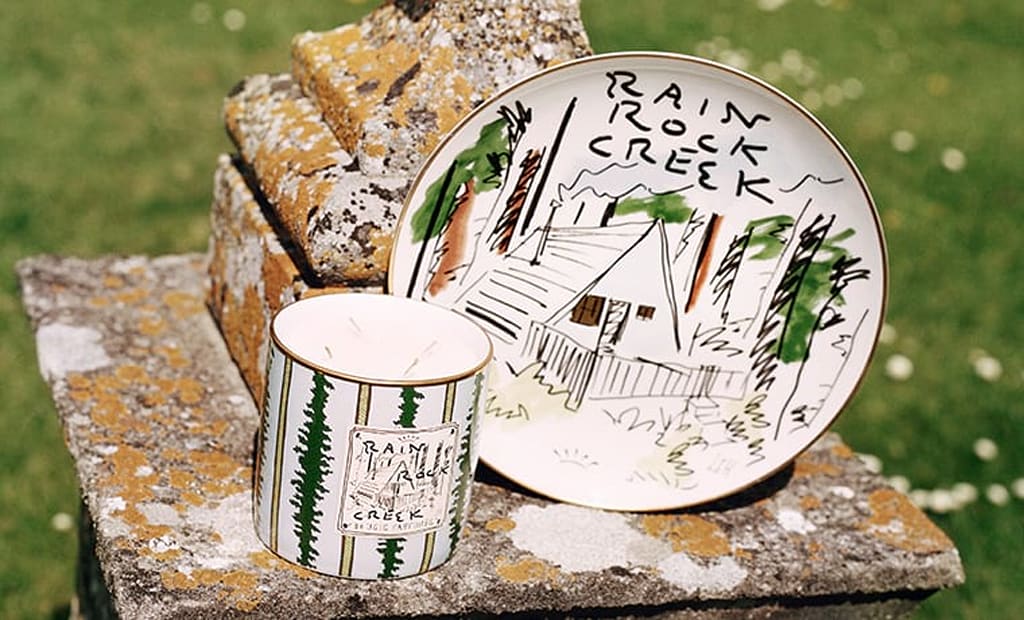
For over two centuries, the Ginori Manufactory has had a single extraordinary obsession: beauty.
The history of the Ginori Manufactory began in Doccia, just a stone's throw away from Florence. Inspired by his passion for white gold, Marquis Carlo Andrea Ginori started a porcelain factory which was destined to become a worldwide icon of style. Today, the tradition of the Florentine maison is the same as it has always been: turning porcelain into pure beauty.
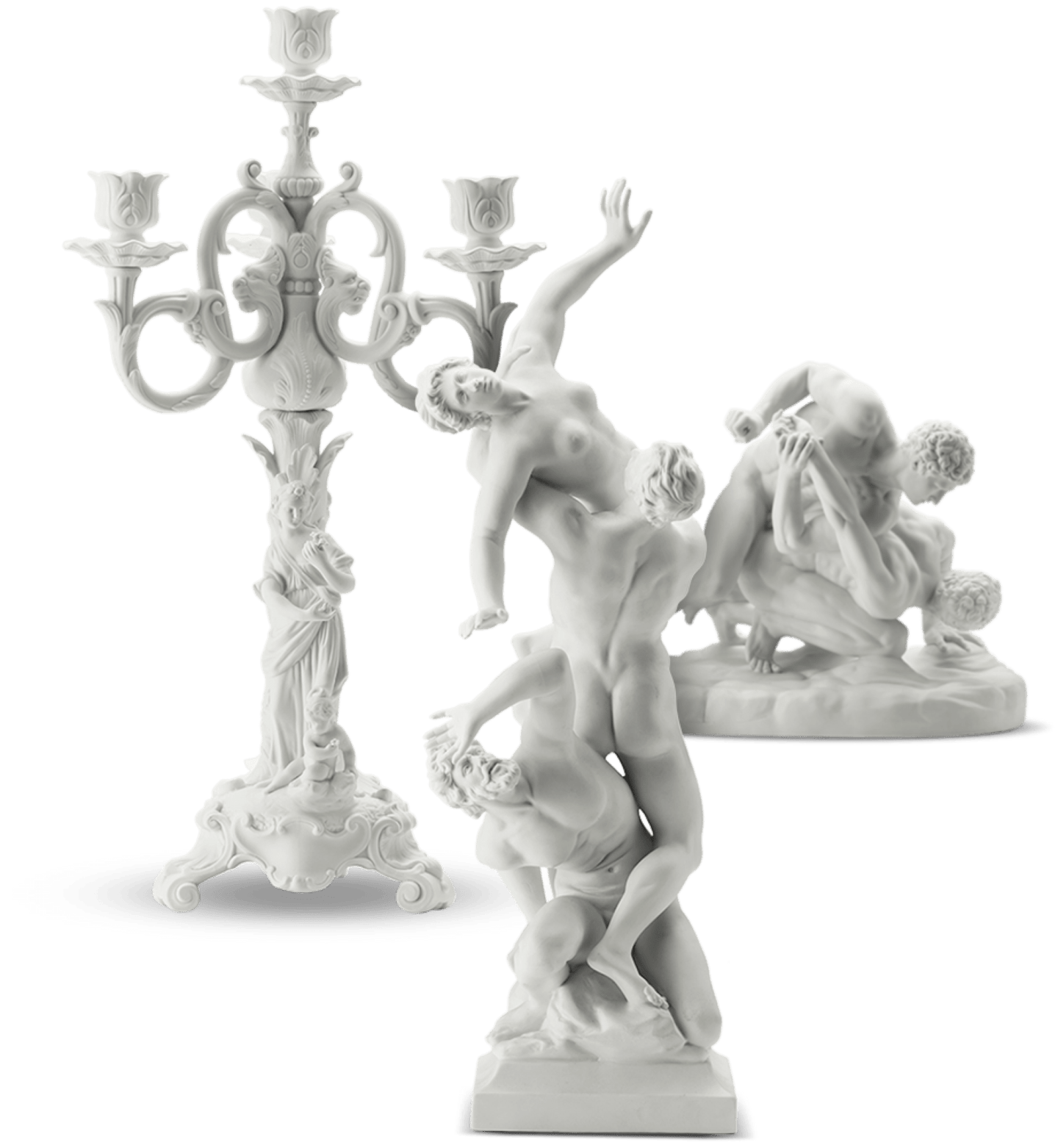
The eighteenth century is a key century for the development of porcelain in Europe, in this period the first manufactures are born, fed by new styles and international trends. At Doccia, Carlo Ginori takes the opportunity to give space to a creativity capable of synthesizing the elements of the ancient tradition with more modern influences. The Manufacture gives life to the art of making porcelain and Ginori becomes the international reference point for the creation of sculptures.

Ginori porcelain is the protagonist of the most exclusive residences.
In stately homes, palaces and courtyards, the precious porcelain of the Doccia Manufactory is synonymous with elegance and refinement. In the same historical period, the a stoia (woven matt) motif was created and, subsequently, the collections were enriched with luxurious gold decorations.

International trends and Made in Italy style.
The era of International Exhibitions, naturalistic taste and Romanticism began. The collections were enriched with floral elements and new decorations for the table.
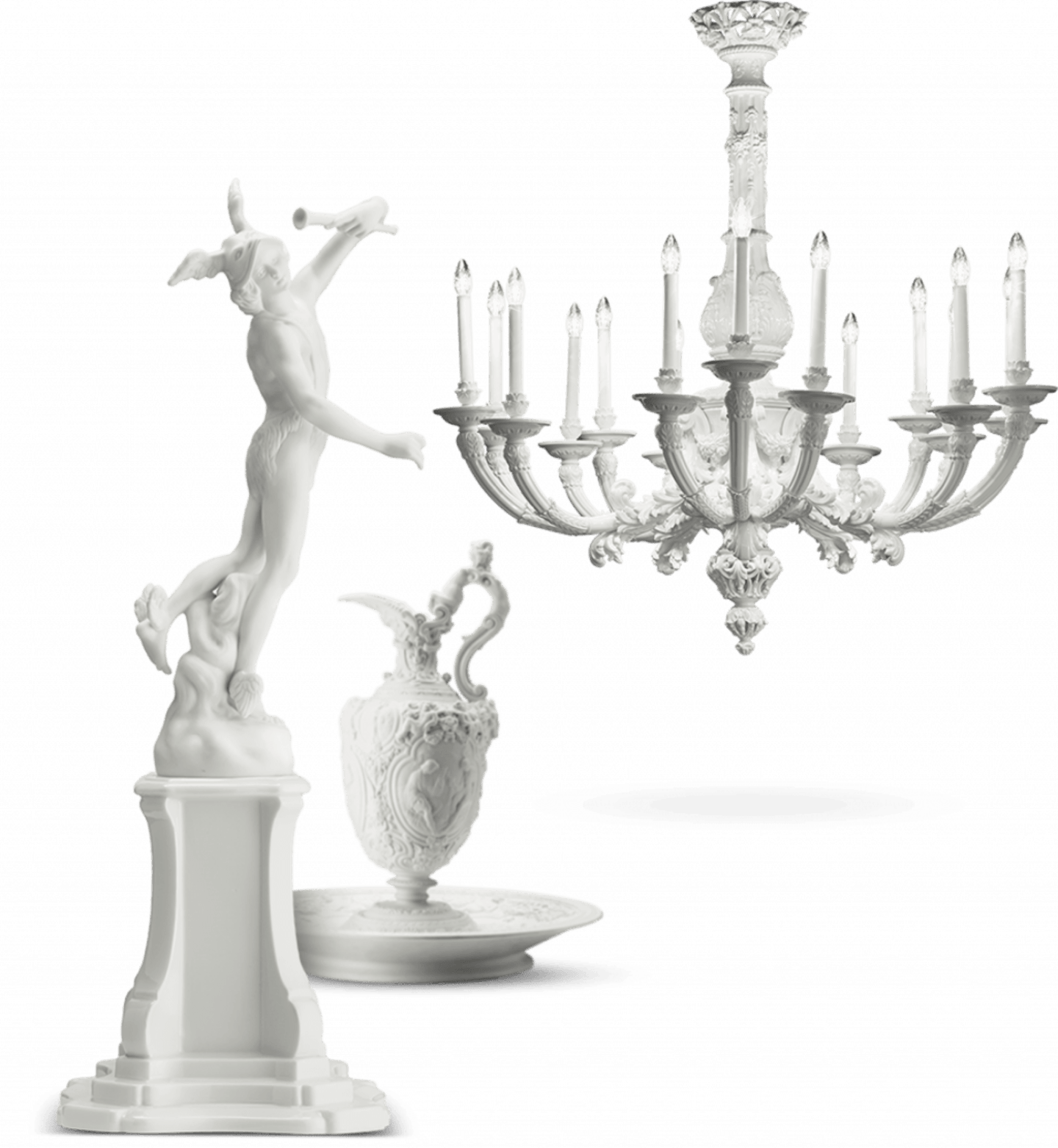
The passage from the century of reason to that of feeling marks a new chapter in the development of artistic taste and the manufacture of porcelain. Florence becomes the scene of a controversy between the academic supporters of the Beautiful ideal and the naturalists promulgators of the beautiful natural Since 1806 the direction of the Manifattura passes to Leopoldo Carlo Ginori Lisci. The young heir immediately shows that he has a broad entrepreneurial vision and initiates a process of profound renewal.
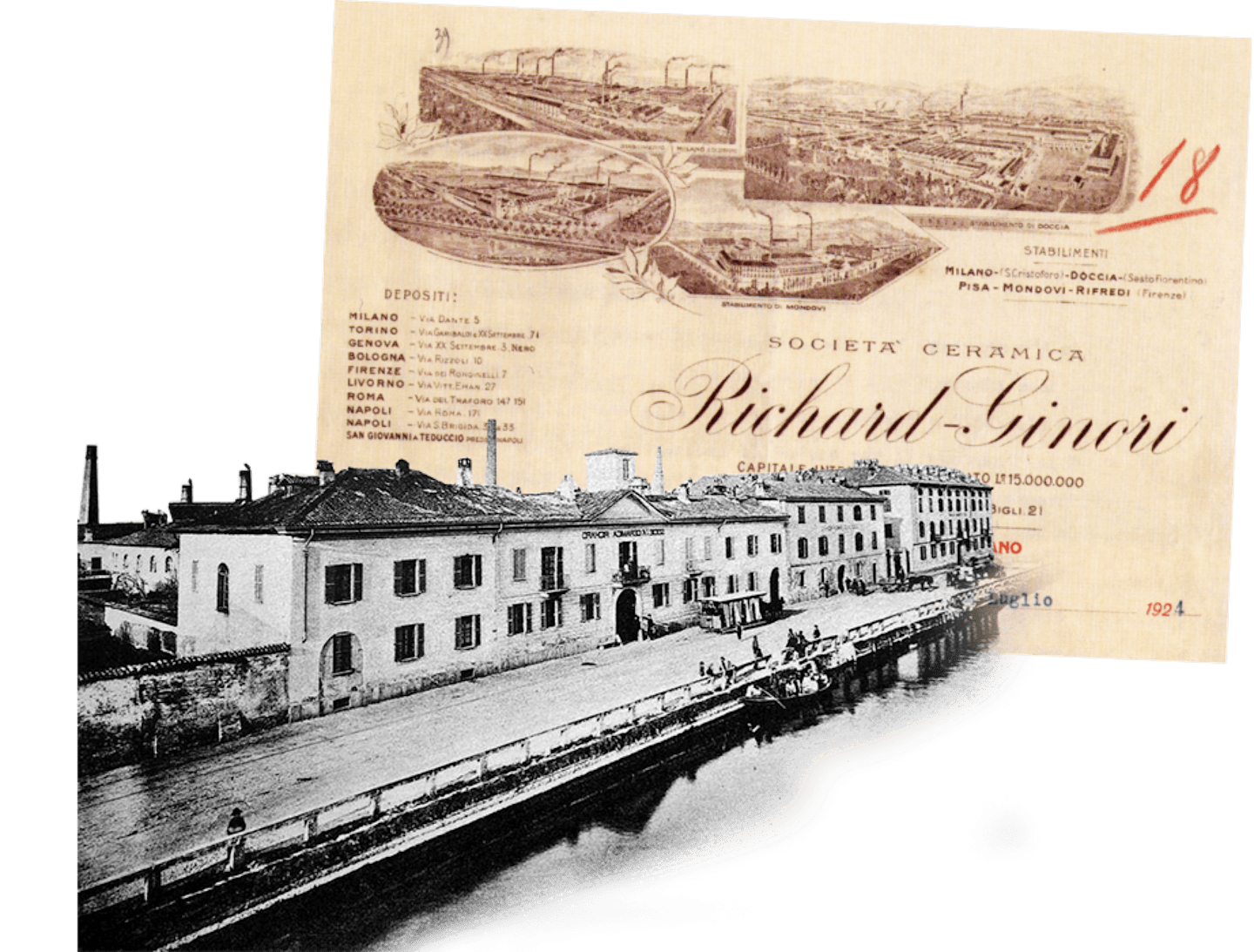
The art that has traveled the past, to imagine the future.
The Manifattura expands and the Richard Ginori Ceramic Company is born. The tradition of master craftsmen meets new technologies and the creations are perfected thanks to the use of new patents.
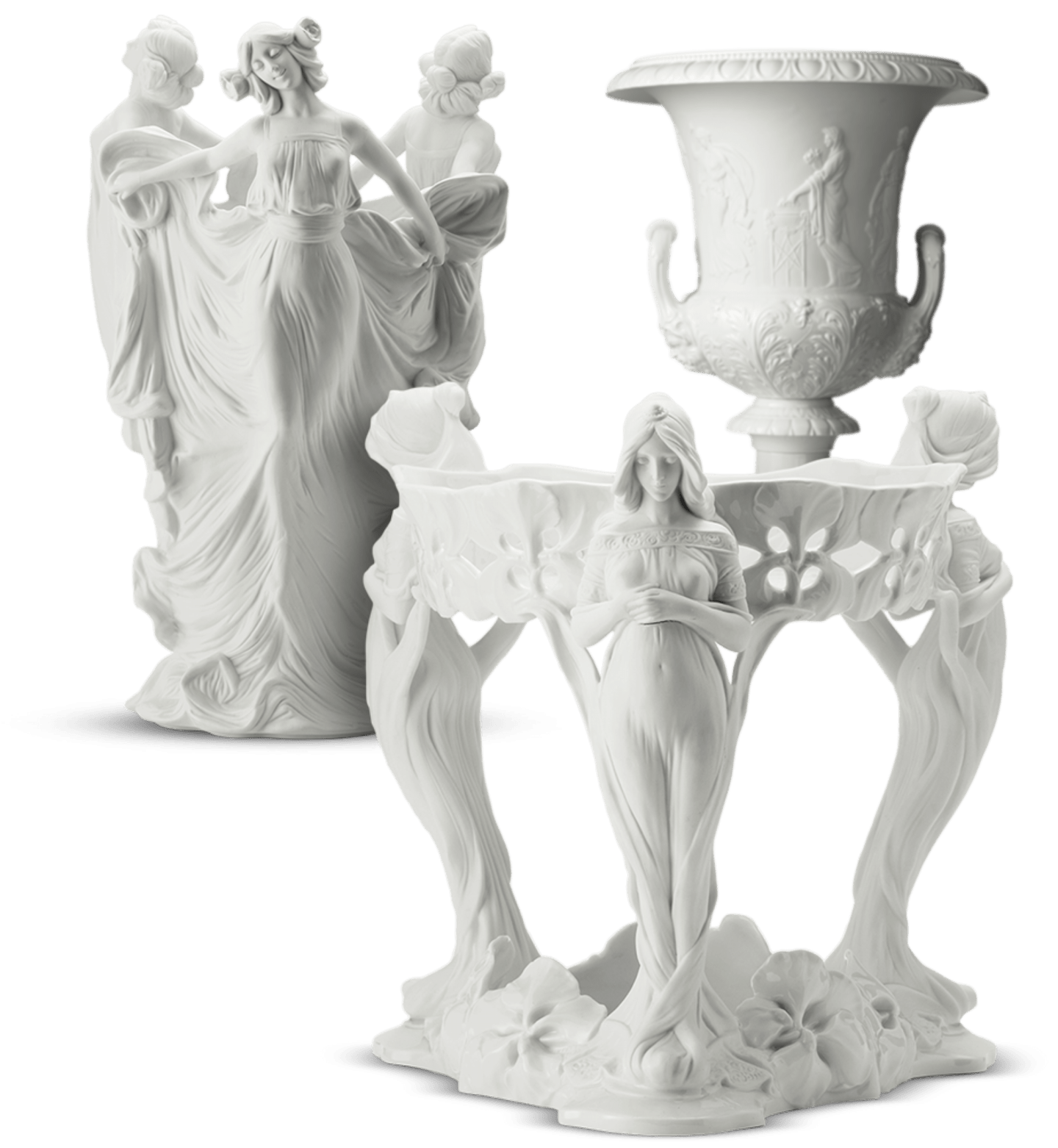

The artistic genius of Gio Ponti.
The great master Giò Ponti was made creative director and the Ginori Manufactory spread its new decorative solutions throughout Europe.
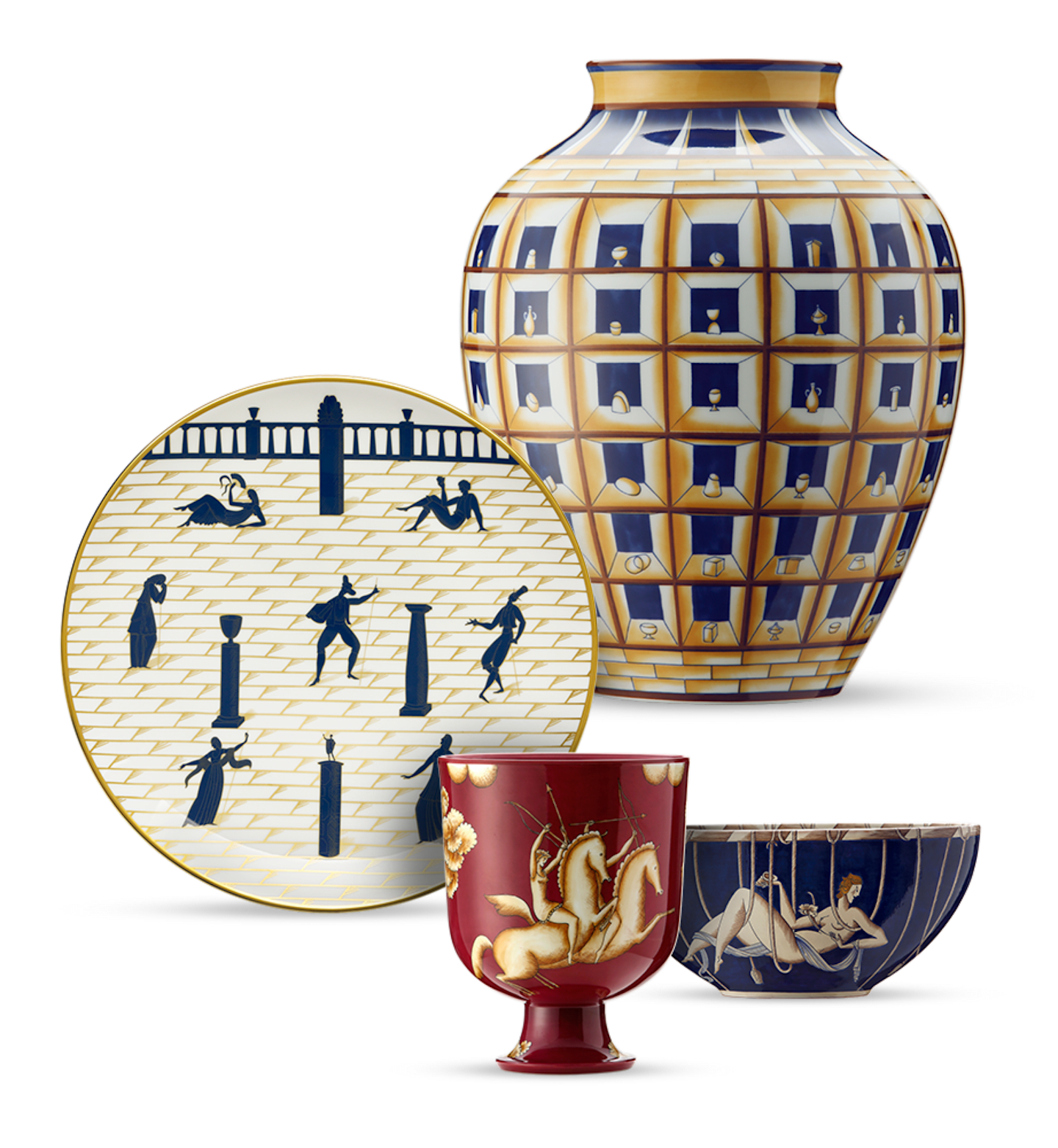
From 1923 to 1933 the artistic direction of the Manifattura was entrusted to Gio Ponti. Master is responsible for introducing highly innovative elements with sensitivity and respect for the taste for the ancient, and for the oriental culture. In 1925 at the Universal Exposition in Paris, the Manifattura and its artistic director were awarded with the assignment to both of a Grand Prix.

A master of modernity.
Giovanni Gariboldi (1908-1971) ranks among the most influential figures in the history of Italian decorative arts. He began his career at the age of just 18 when in 1926 he joined Ginori as an apprentice model maker under the guidance of Gio Ponti. Years later amidst a changing, modern, post-war society, Gariboldi took helm of Ginori as Artistic Director. During his time at the Manifattura, Gariboldi embarked on an artistic journey, redrafting the conventions of the art of porcelain in bringing together aesthetics and technique, beauty and practicality, design and daily life. Gariboldi left a legacy as one of the most influential figures in Italian modernism & decorative arts.

Ginori 1735 transformed the art of the table into a wonderful ritual.
Giovanni Gariboldi projected the art of the manufactory in everyday dimensions. Ginori 1735 tableware sets interpreted this class with a minimalist design. A new style of functional elegance was sought and born at the same time, to interpret new styles and modern trends. The Colonna collection marked 1954 as a pivotal year for Gariboldi. The extraordinary aesthetic integrity with which the collection met the requirements of minimal dimensions and practicality earned it the first Compasso d'Oro, the world's most prestigious design award for enhancing the functionality and artistry of objects of design.
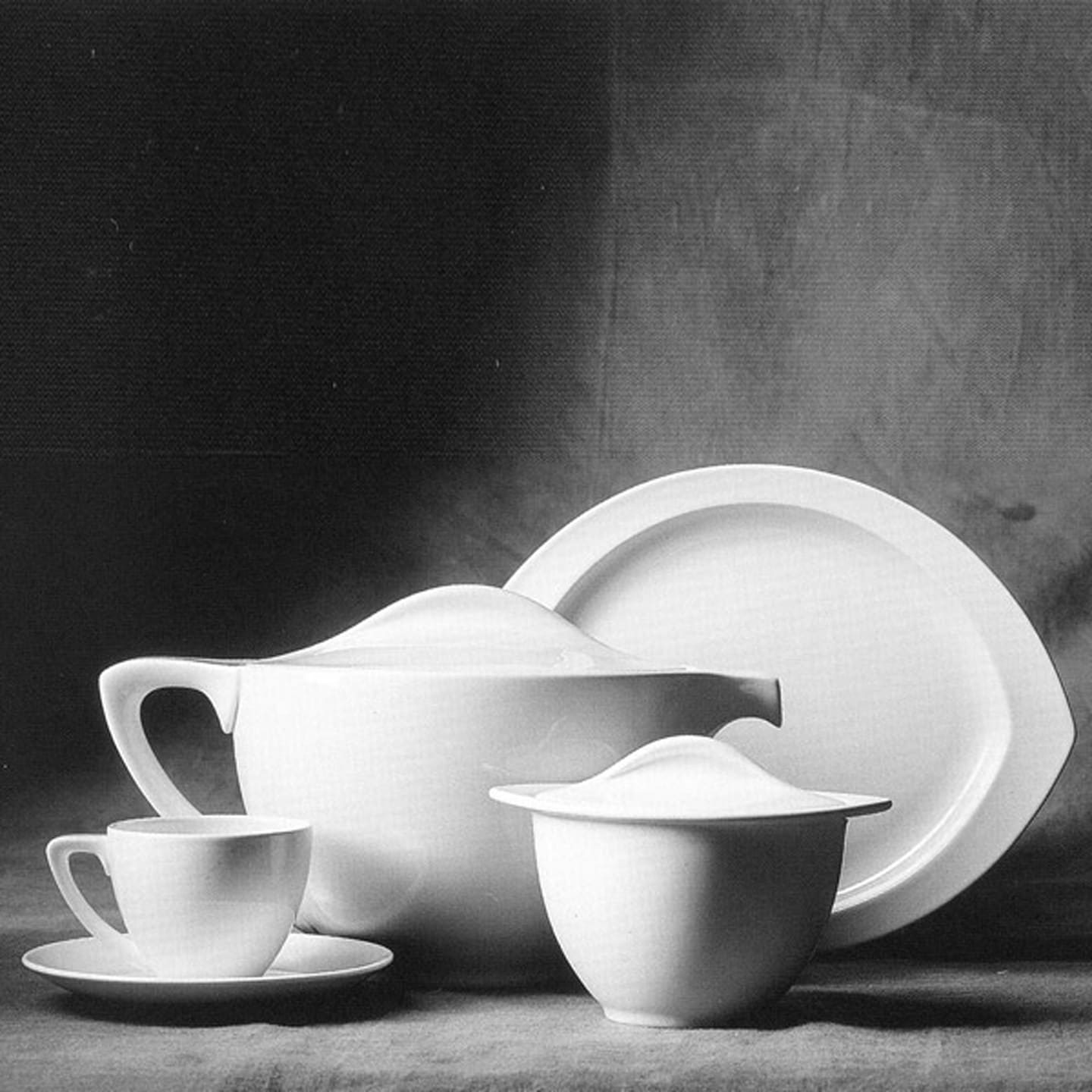
Many styles, only one muse: excellence.
The Manufactory was renewed by relying on the experience of the greatest Italian designers of the time: Franco Albini, Franca Helg, Antonio Piva, Sergio Asti, Achille Castiglioni, Gabriele Devecchi, Candido Fior, Gianfranco Frattini, Angelo Mangiarotti, Enzo Mari and Aldo Rossi.
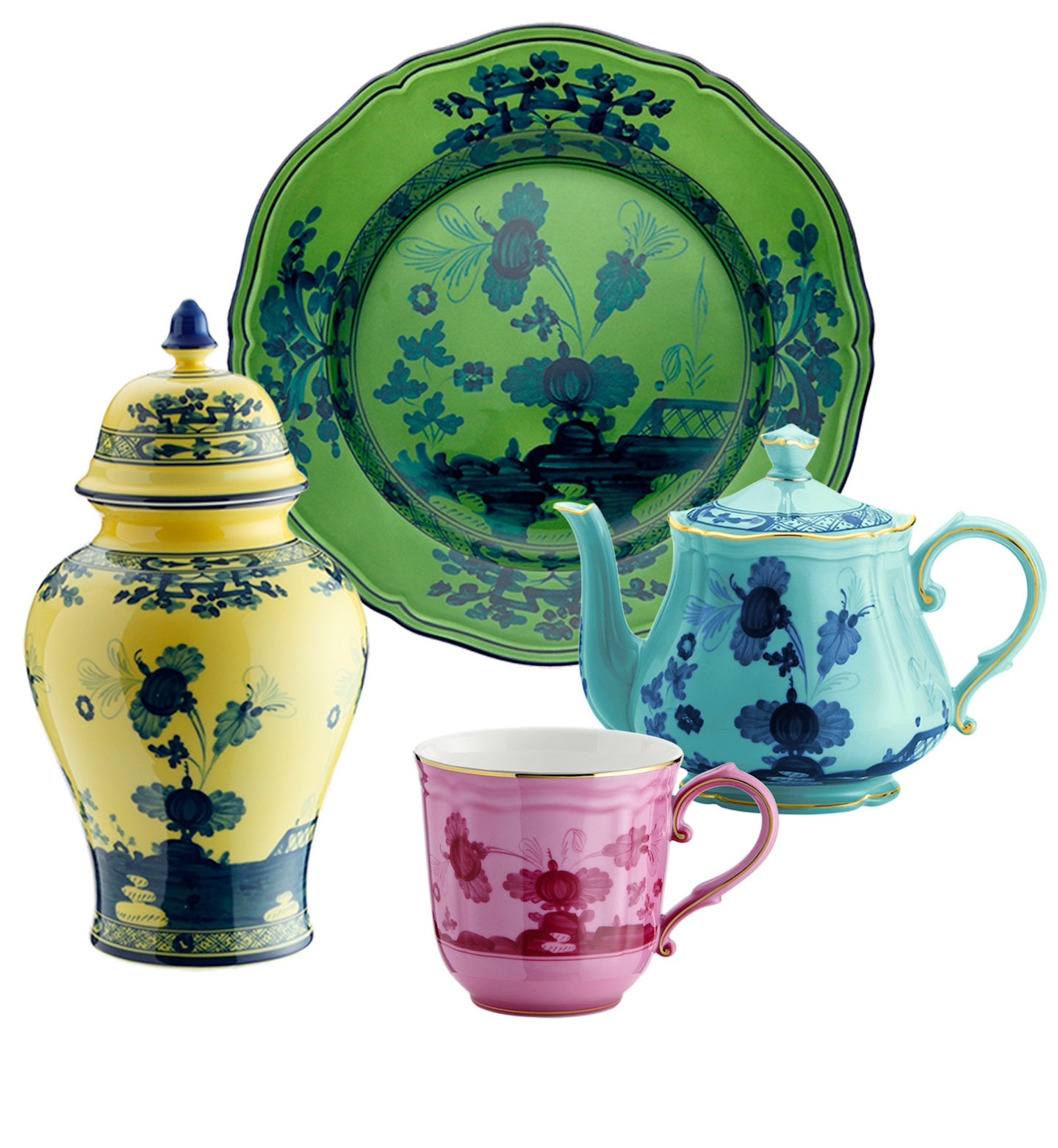
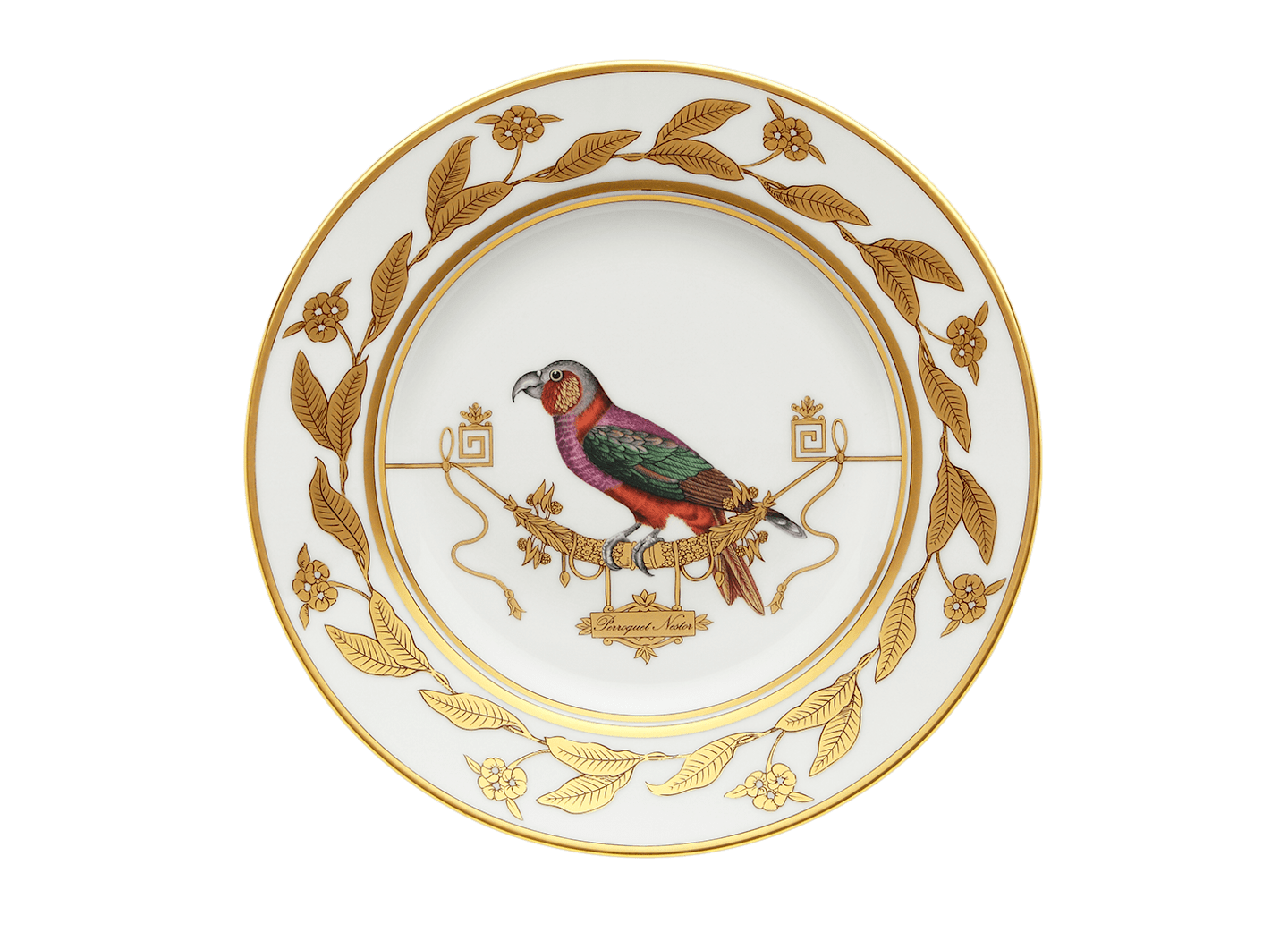
The direction of Alessandro Michele
In 2013 Manifattura Ginori was acquired by Gucci, joining the Kering group and Alessandro Michele became its artistic director. His vision, passionately oriented to tell contemporary taste, gives birth to new collections that successfully reinvent the centuries-old craftsmanship treasured by the Manifattura over time. During this period, the brand strongly redefines its image, repositioning itself toward a more exclusive segment that leads it to embrace the new flagship store concept, with one in Florence and one in Milan.
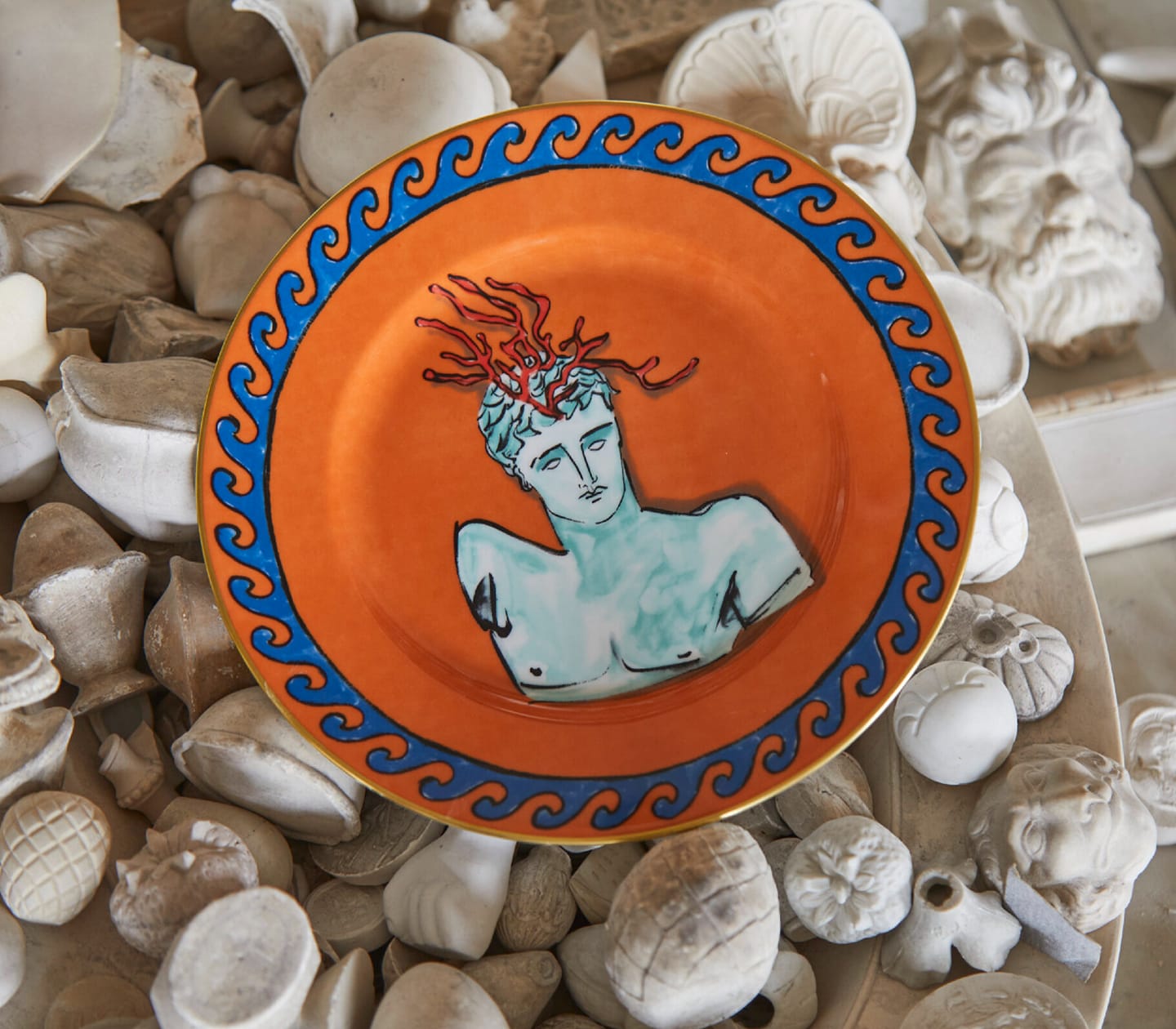
Luke Edward Hall
Il Viaggio di Nettuno by Ginori 1735 begins with a meal in company, a large table gathered on a terrace facing a beach on the Mediterranean Sea. And there, around that table overlooking the sea, suddenly the world is tinged with vivid colours and populated with mythological creatures.
The decorations of the porcelain plates, cups and trays of Il Viaggio di Nettuno in fact trace the enchanting and extravagant designs created for Ginori by the designer Luke Edward Hall who, as a lover of Greco-Roman mythology, reinterprets its elements and characters, giving shape to a collection with a classic yet never banal taste.

A new name and a new identity
The Manifattura is experiencing an irrepressible wave of renewal that involves it at all levels starting with its historic name: from Richard Ginori to Ginori 1735. This change is followed by a transition, from the world of high-quality porcelain tableware and housewares to the luxury and lifestyle sector. A new way of reimagining Ginori 1735's manufacturing tradition that attracts new artists from around the world to create wonderful collaborations, giving the brand an increasingly international feel.
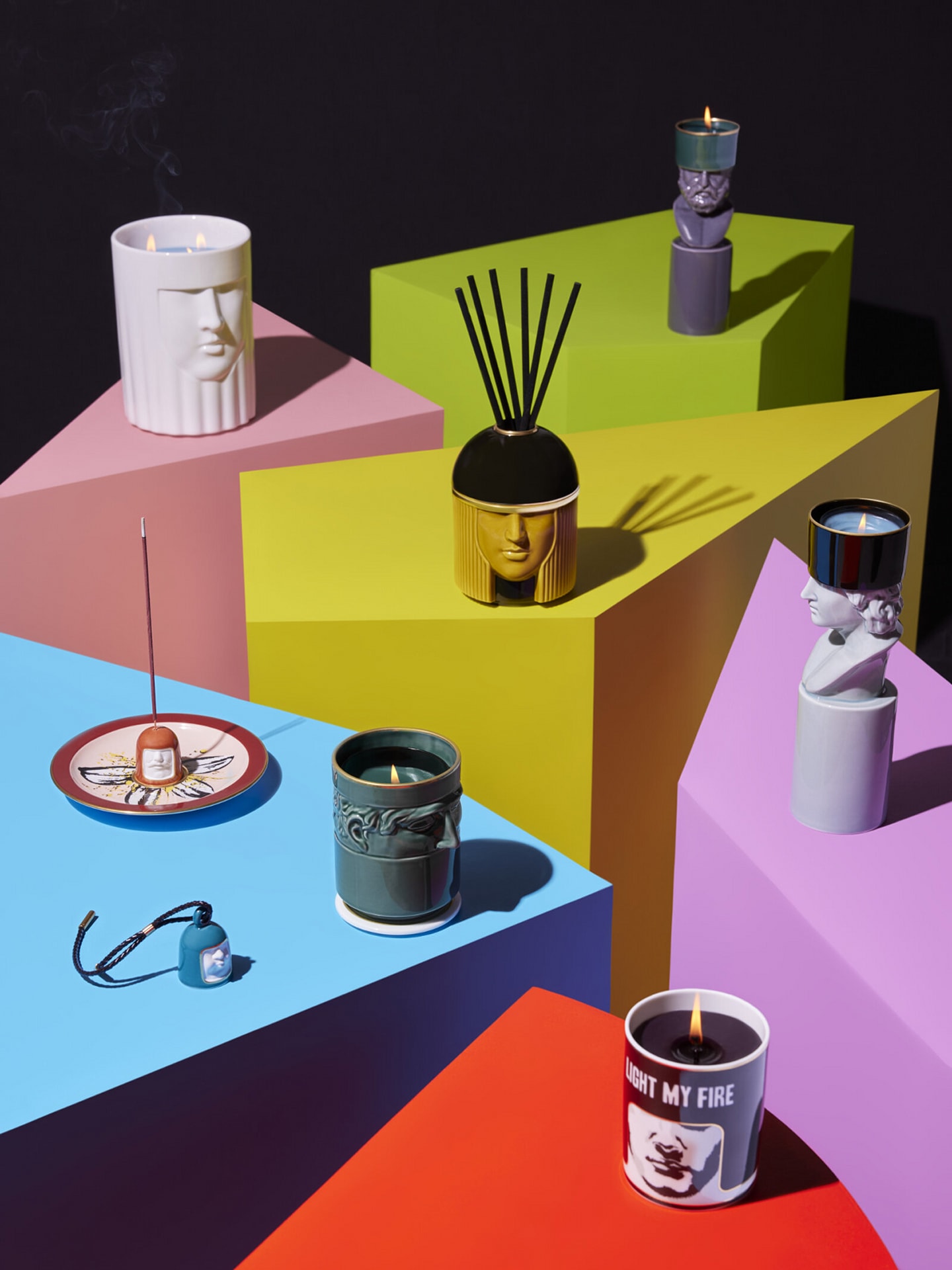
Home Fragrances
The LCDC home fragrance collection, La Compagnia Di Caterina, homages the story of Catherine de' Medici and her journey to Paris. Together with the designer Luca Nichetto, we imagined and gave shape to the characters of her court: l'Amazzone, l'Amante, Il Letterato, Il Seguace, Il Favorito, Il Frate, La Dama e L'Addetto Al Fuoco. Each character in Caterina De' Medici's entourage is conceived as a symbol of a value to aspire to, an ideal that lights one's inner fire: to burn with passion, to feed the fire of ambition, leadership and wisdom, to keep alive the fire of friendship, grace and generosity, to show great courage in seeing everything go up in smoke. And, in search of a modern Renaissance, we have created a symbolic sensory journey linking Florence to Paris through five fragrances: Orange Renaissance, Purple Hill and Black Stone, and the two new arrivals Amber Lagoon and Musk Road. Fragrances and characters then meet in designer scented candles, room perfumers and porcelain incense burners, and together they create La Compagnia Di Caterina.

Home Fragrances
Profumi Luchino is the new Ginori 1735 home fragrance collection, created in collaboration with the English artist and designer Luke Edward Hall: five fragrances designed to envelope and take you on a imaginary journey, yet so vivid - through the artist's best-loved places. Cotswolds, Marrakech, Rajasthan, Big Sur, Venice. Visiting each of these places, Luke allowed himself to be overwhelmed and fascinated by the smells, and playing with olfactory memory found the inspiration for the fragrances in the collection. From this game that mixes reality and fantasy come the drawings of the imaginary buildings that adorn the porcelain scented candles and the other pieces in the collection: a dish, a plate, a small box with lid and the five Luchino's Souvenirs.
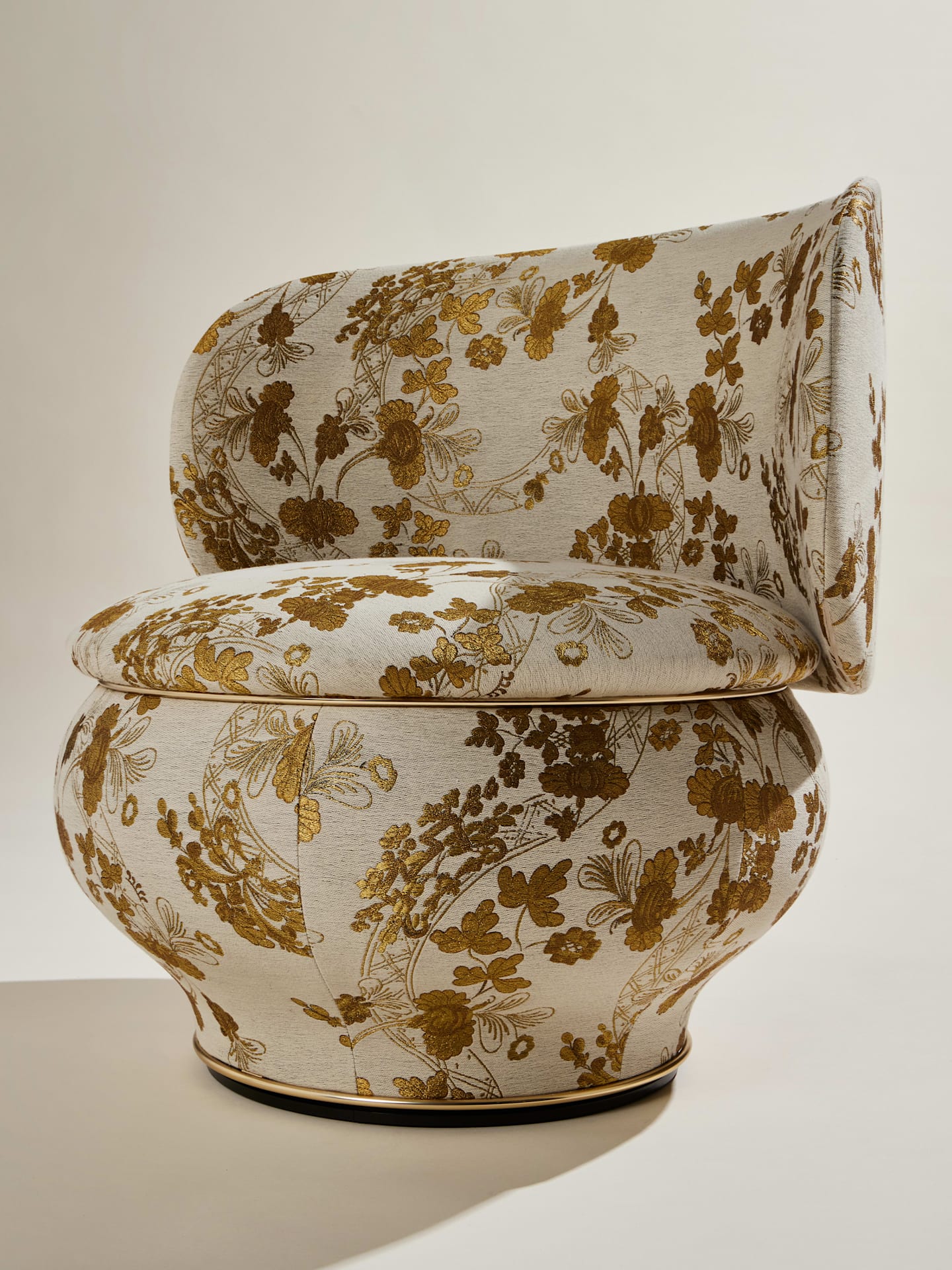
For us, porcelain is not just a material, it’s an attitude: it is the desire and pleasure of bringing Ginori 1735 into your everyday life. So, from the minds, hearts and hands of those who have embraced this truth, Ginori Domus was born.
From a design project stretching over 3 years and the contemporary vision of designer Luca Nichetto, Ginori Domus launches into the world of home decor and interior design with the desire to transform every moment of the day into a ritual of our time.
Furnishings, fabrics, lighting, fragrances, crystalware and cutlery are the new territories we have explored with grace and courage. The manufacturing partners we have worked alongside to realize this collection are Rubelli, renowned for their wealth of experience in the textile sector, and Barovier & Toso, celebrated for their one-of-a-kind crystal creations.

Effervescent. Refined. Feminine.
Diva collection masterfully combines the fascination of the past with a modern perspective, emerging as the undisputed star on the table. Paying homage to the vibrant energy of iconic 1950s design, this new collection captures the essence of a golden age of Italian design. Inspired by the elegance of the leading ladies of the silver screen, DIVA comes in four delicate pastel colors with golden lines that caress the porcelain. DIVA invites an infinite number of combinations, offering a touch of timeless sophistication.















